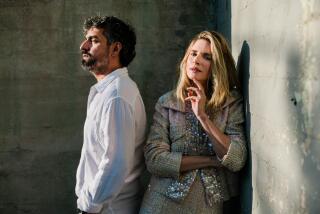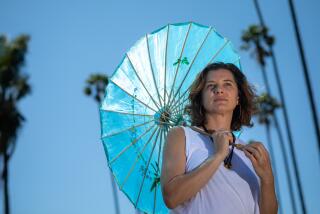A co-working whodunit clips corporate feminismâs Wing
âWonderful things happen when passionate women and marginalized genders come together,â says Eleanor Walsh, the telegenic founder of the eponymous womenâs workspace in Andrea Bartzâs campy co-working whodunit, âThe Herd.â A pulpy satire of millennial corporate feminism and a parodic homage to the Wing, Bartzâs second novel explores the complexities of female friendship and the contradictory ambitions, secrets and anxieties that bond a group of New York City media âitâ girls.
Plucky journalist Katie Bradley is running from a depressing year in Kalamazoo, Mich., and an unfinished book project about fake news when she applies to the exclusive womenâs co-working space; Walsh, the founder and influencer-girlboss, is Katieâs sisterâs best friend and PR client.
Desperate to shake off her needy literary agent, Katie devises a plan to leverage access to Eleanor and the so-called Herders for material. But just as she begins to sleuth around the Herd, Eleanor vanishes, unleashing a cascade of revelations that threaten to upend the pseudo-utopia.
Bartz has been widely hailed as a master of the âfeminist thriller,â and both âThe Herdâ and her 2019 debut novel, âThe Lost Night,â are deftly constructed page-turners starring flawed female protagonists whose successes are stymied by sexism â implicit, explicit and systemic.
In âThe Herd,â as in life, with power comes online harassment. Menâs rights activists and angry trolls are obvious early suspects in the business mavenâs disappearance, as is the plaintiff in a ripped-from-the-headlines gender discrimination lawsuit against her fictional venture. Bartz effectively builds tension and suspense throughout the story, though at times she relies heavily on foreshadowing or flashbacks attributed to its first-person narrators. (The novelâs point of view alternates between Katie and her older sister Hana, whose friendship with Eleanor dates to their time at Harvard.)
Still, itâs not always clear whether we should root for Bartzâs characters, whose flaws may reflect the asymmetric costs of success for women but strain any impulse toward compassion: Often they are obsessively preoccupied with insecurities about their achievements, looks and abilities in relation to their peers â the very same women they supposedly identify as allies. At their worst, they come off as ruthless, backstabbing and borderline self-obsessed. In other words, the survival instinct is not always a good look.
Bartzâs gossipy thriller is a quick, pleasant read, but âThe Herdâ falls short of the sharp critique its subject deserves. The problem may partly stem from how little of the story takes place in the actual co-working space, characterized in sparse details and features lifted from the Wing, rather than fully imagined as a distinct fictional site of its own.
As a result, the hellaciousness of the Herd and, more broadly, the dystopian underbelly of feminist utopia â arguably the most interesting of the novelâs themes â are left unexplored. By the end of the book, the notional centerpiece of the shared workspace feels remote, less like an overarching metaphor for how women relate to one another than a kind of borrowed set furniture.
More interesting are the Darwinian implications, hinted at in the title, of the way our interactions mirror the social instincts of animals who congregate for collective safety. Recalling the movements of deer, one of Bartzâs heroines muses that âA herdâs primary purpose is to keep the highest percentage of its members alive. Evolution doesnât care about the individual, about survival of the least-fit. We team up for the most selfish reason possible: self-preservation.â Itâs an elegant passage and an arrestingly cynical description of human relationships, if not a boon to the business of boutique office space.
Bartz is at her best in moments of heightened absurdity, and though she fumbles to articulate a critique of the Wingâs âfeminism as super-brandâ ethos, she can be good at revealing its thinness and hypocrisy.
âThe Herdâ returns over and over to the leitmotif of deception and the disparity between who people really are and how they present themselves in public (usually via Instagram). The reader is left to wonder not just if they personally find Bartzâs characters credibly likable but if they can sign onto the ultimate purpose of preserving spaces solely dedicated to âwomenâs empowerment.â Empowering women to do what?
The Herd
Andrea Bartz
Ballantine: 336 pages, $27
Tiven is a journalist, critic and poet living in Los Angeles.
More to Read
Sign up for our Book Club newsletter
Get the latest news, events and more from the Los Angeles Times Book Club, and help us get L.A. reading and talking.
You may occasionally receive promotional content from the Los Angeles Times.






